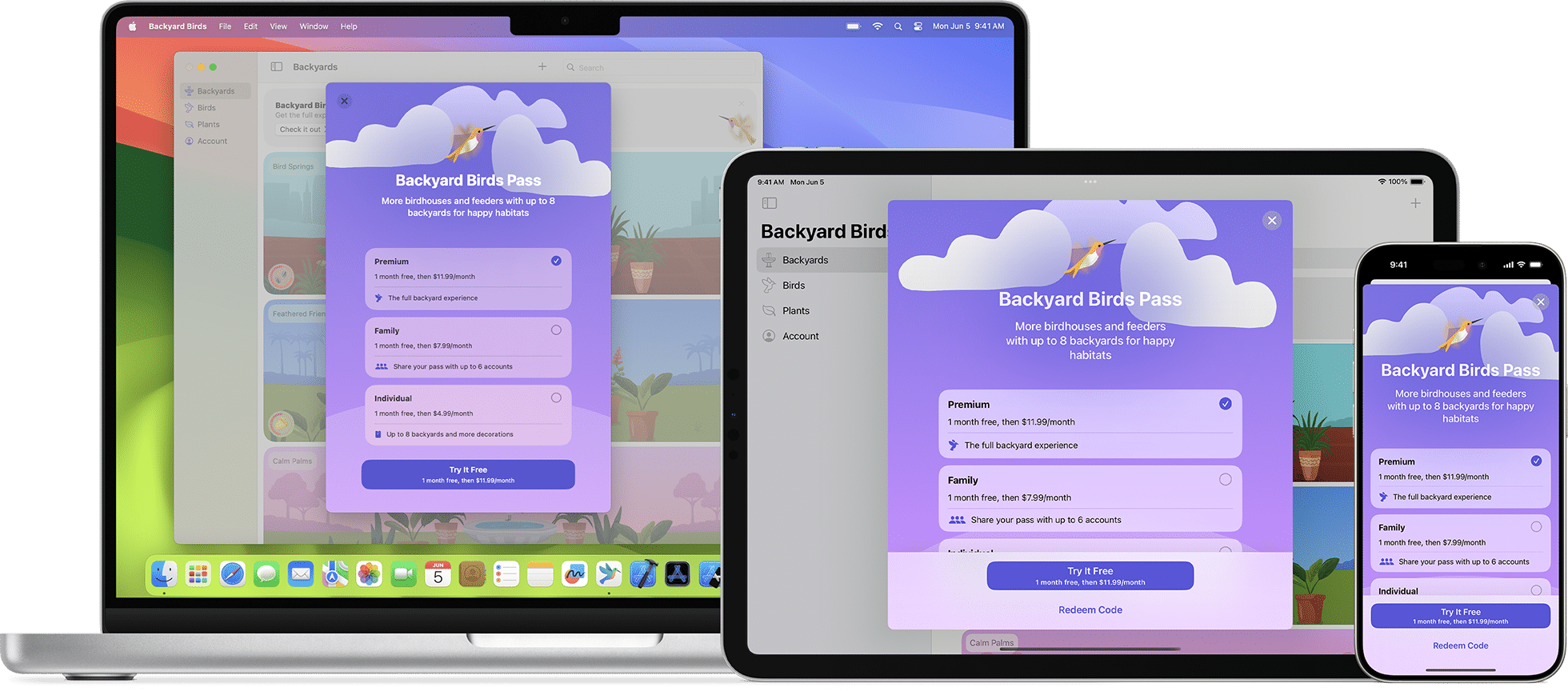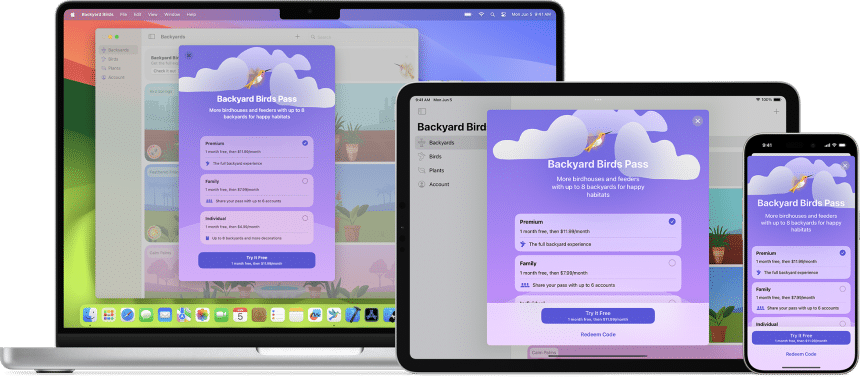Apple has introduced the Advanced Commerce API, a groundbreaking tool designed to give developers more control over in-app purchase (IAP) catalogs. Announced on Apple’s developer page, this new API is tailored for apps with extensive content catalogs and complex subscription models.
Developers can now manage purchases without relying solely on App Store Connect, opting instead for the Advanced Commerce API or a combination of both.

Features and Benefits for Developers
The API supports various types of in-app purchases, including premium features, digital goods, and subscription bundles. For instance, mobile game developers can now offer items directly through IAPs, bypassing traditional in-game currency systems.
This innovation could simplify the purchasing experience for users, allowing them to buy in-game assets or subscription add-ons directly. Video streaming apps, for example, can create more flexible bundle options, offering users additional channels or premium content as digital goods.
Apple emphasizes that the API does not alter existing business terms or developer commission rates. However, purchases processed through the API cannot use certain App Store features, such as Family Sharing or StoreKit testing in Xcode.
Strict Eligibility Requirements
Not all developers can immediately access the Advanced Commerce API. Eligibility is determined on a per-app basis, with strict requirements to ensure compatibility and compliance. Apps must already use the App Store commerce system and support operating systems such as iOS 15, iPadOS 15, or later versions.
To qualify, apps must have exceptionally large catalogs or offer subscriptions with add-ons. For example, an entertainment app providing subscriptions and premium channels could be eligible.
Potential Impact on In-App Purchases
The Advanced Commerce API promises to revolutionize how developers manage IAPs, offering more flexibility and streamlined user experiences. However, its strict access requirements may limit adoption in the short term.
As developers begin to test the API, more insights will emerge about its practical applications. While it simplifies some aspects of IAP management, it further integrates developers into Apple’s ecosystem, raising questions about long-term control and costs.
Apple’s move demonstrates its commitment to evolving the App Store experience, ensuring it remains competitive and developer-friendly in an ever-changing digital landscape.












